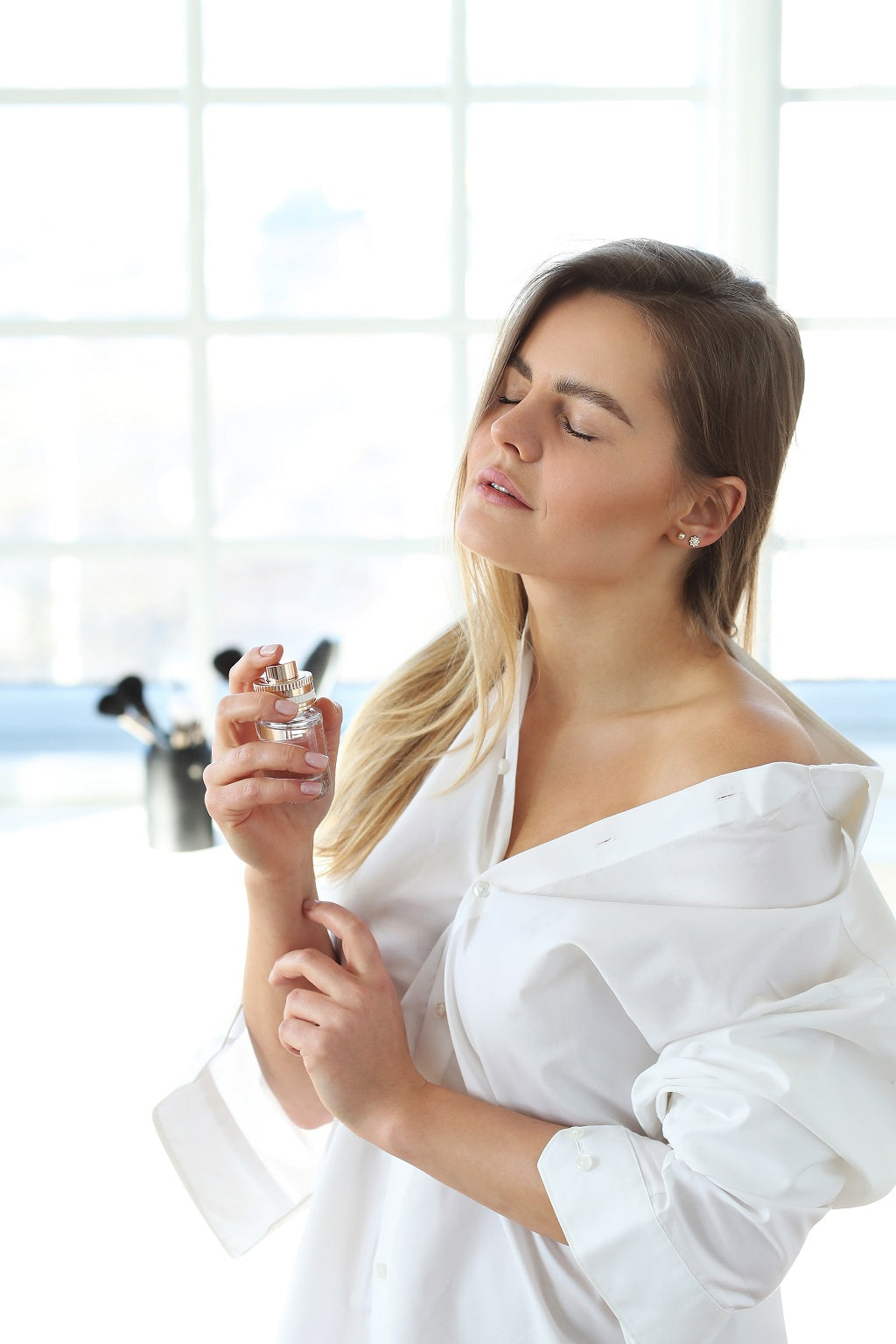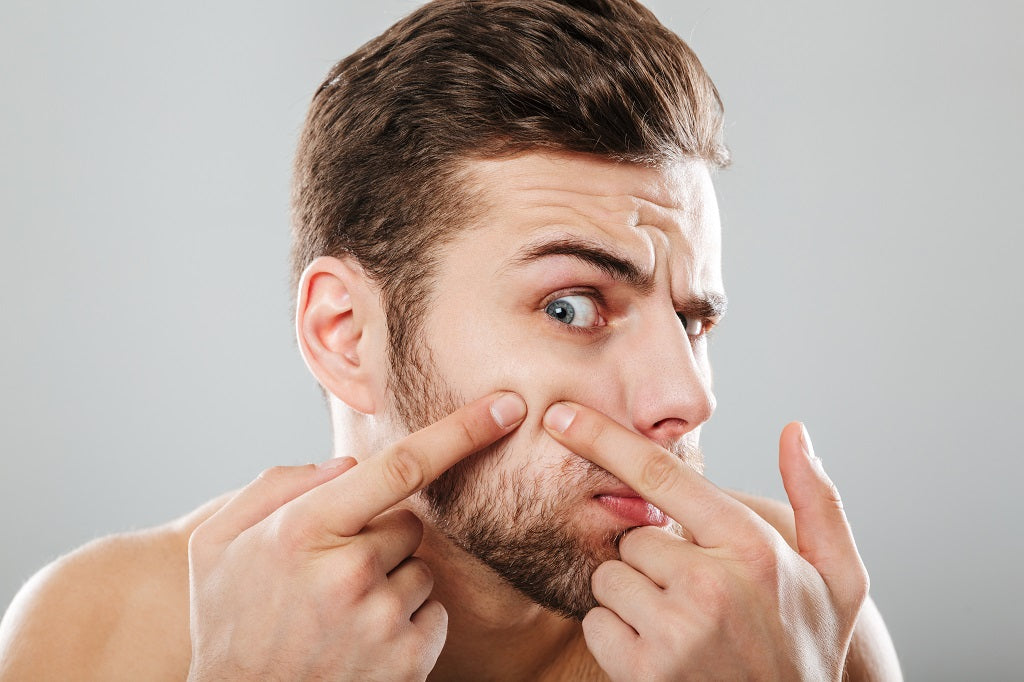The art of perfume making is centuries old. Essential oils have been used in making perfumes for the longest time, and we can DIY them too, with access to the right resources. In this article, you will learn how essential oils are used in perfume making, what blends go well together, the benefits of aromatherapy, DIY perfume blends, and how to make a perfume last longer.
Why Are Essential Oils Used In Perfume Making?
The fragrance of commercial perfumes can be overpowering, plus it may contain certain harmful chemicals that you may be breathing in.
Essential oils are derived from plant parts. These essential oils have an enchanting fragrance and have a profound influence on the world. They are found in many of the products that we use every day. Essential oil is used in perfume making because it smells great; moreover, it uplifts your mood and relates to mental well-being.
Also Read : 10 Essential Oils That Promote Happiness and Good Mood
While essential oils can be used for the top, middle and base notes in perfume-making, some oils are more popular than others.
Types Of Fragrance
Before you embark on your journey of perfume making, there are some important things you should know. You should be aware of the different fragrances in perfume making and which one to choose. In 1939, Micheal Edward had proposed a ‘Fragrance Wheel’ to classify fragrance into different categories.
Fresh
Fresh scents often contain water, citrus, or green tones. It means that these scents have a fresh and clean smell. Citrus fragrances often include lemon, mandarin, and bergamot. Water fragrances use aquatic notes such as sea spray.
Floral
Floral perfumes are one of the most loved and eclectic groups of fragrances. This family contains fragrances with pleasant floral notes, such as roses and jasmine.
Woody
Woody scents, belong to a warm family of perfumes that have a mysterious and alluring scent Cedarwood, sandalwood, vetiver, and amber are all known to have woody fragrances.
Oriental
Oriental scents can be sweet, warm and even a bit spicy. Oriental perfumes belong to a luxurious fragrance family, which includes floral oriental, soft orientals, and oriental woody scents.
Top 10 Essential Oils Used For Perfume Making
If you want to make the greatest blend of essential oil for your perfume you should be aware of the fact that fragrance is divided into 3 main groups:
Top Notes: In perfume, top notes have the lightest fragrance and are the first to grab your attention when you sniff them. These oils are more volatile and quickly evaporate.
Mid notes: The main component in the perfume is the heart note, also known as the middle note. These notes determine where your fragrance falls on the Fragrance Wheel. Unlike top notes, their fragrance lingers for a much longer period of time.
Base Notes: These notes have a stronger fragrance that can last for up to 6-8 hours. Base notes help prevent your top and middle note scents from evaporating.
Top Note Essential Oils
Top notes evaporate quickly and are associated with the citrus family of fragrance. About 5-25% of your perfume is made of top notes.
1. Lemon Oil
Lemon has a fresh, rejuvenating scent that goes well with other citrusy aromas such as lime and citron. Using lemon oil as the top note can stimulate your olfactory receptors and alleviate your mood. Lemon oil which is mostly used as a top note, fades quickly, but it will still be one of the first scents recognized upon application.
2. Orange Oil
The strong and citrus scent of Orange oil is great for top notes. This makes it one of the most versatile essential oils.
ANVEYA ORANGE ESSENTIAL OIL, 100% PURE, 15ML
- Great for SKIN, FACE & ACNE
- Hair Health: Prevents CLOGGED PORES or the formation of fungal infections.
- Mood-Lifting AROMATHERAPY: Enjoy the fresh, citrusy aroma
3. Grapefruit Oil
Grapefruit oil has a refreshing fragrance that revives your senses. With its strong undertones, it balances its sweetness perfectly. It goes well with rose, bergamot, and an earthy scent like cedarwood or balsam fir.
Middle Note Essential Oil
Once the top notes of a perfume fade, the middle note comes into picture. They are mostly fruity, spicy scents but have a predominantly floral fragrance.
4. Lavender Oil
Lavender oil is used in perfumes as a middle note because it blends well with other notes like, chamomile, lemon and cedarwood.
5. Eucalyptus Oil
Eucalyptus is a minty scent and is well-suited for fragrances that have woody tones. It is well-known for its unique aroma.
6. Lemongrass Oil
Lemongrass is known for its lemony scent and is used as a middle note in perfumes. Lemongrass's fresh and herbaceous scent blends well with other essential oils such as jasmine, sandalwood, and bergamot which are also recommended for perfume production.
7. Jasmine Oil
The strong scents of jasmine oils make it a desirable ingredient in perfumes.
Base Notes
The main role of base notes in perfume is to balance your scent. The fragrance of the base note lasts longer than the top and middle notes.
8. Cedarwood oil
Cedarwood oil is a popular base note in perfumes and colognes. It blends well with the upper and middle tones. The essence of cedar tree leaves, bark, or needles gives it a warm and earthy fragrance.
9. Ylang-Ylang oil
Ylang-ylang has a resonant, exotic scent that makes it a great essential oil for perfume production. It's actually a key ingredient in one of the most timeless perfumes. It blends well with sandalwood, orange, and bergamot.
Also Read : Ylang Ylang Essential Oil - Benefits, Usage & more
10. Patchouli oil
Patchouli oil has a sweet and spicy scent that is highly preferable in perfume making.
How To Make Perfume At Home?
Now that you know everything about essential oils and their role in perfume making, lets learn how to make perfume at home.
For making perfume at home you need 2-3 essential oils from each note. Here is what you may need to make perfume at home.
- A clean glass container with a roll-on lid.
- Essential oil of your choice from all the 3 notes (i.e top, middle and base)
- Carrier oil of your choice.
- Vitamin E (10-12 capsules)
- Eyedropper
Procedure
- You must ensure that the container is clean.
- You can add oils in the following order: base (5-20%), middle (60-80%) and top (5-20%). Keep adding oils until you find the perfect scent.
- Add a carrier oil like almond or fractionated coconut oil to top it off
- You can add vitamin E capsules.
- Keep it in cool, dark places away.
How To Make A Perfume Last Longer?
To make your perfume last longer, moisturize the skin with an unscented oil - body oil. After the oil has been absorbed, you can apply your natural DIY perfume as usual. Moisturised skin will hold your fragrance for up to 40% longer than dry skin. You can layer your fragrance.
Also Read : DIY Natural Perfume With Essential Oils
Disclaimer: All the content on www.anveya.com/blogs/top-tips is solely for information. It is not intended to be a substitute for professional medical advice, diagnosis or treatment. Always seek the advice of your physician or a qualified health care provider. The information, suggestion or remedies mentioned on this site are provided without warranty of any kind, whether express or implied.




